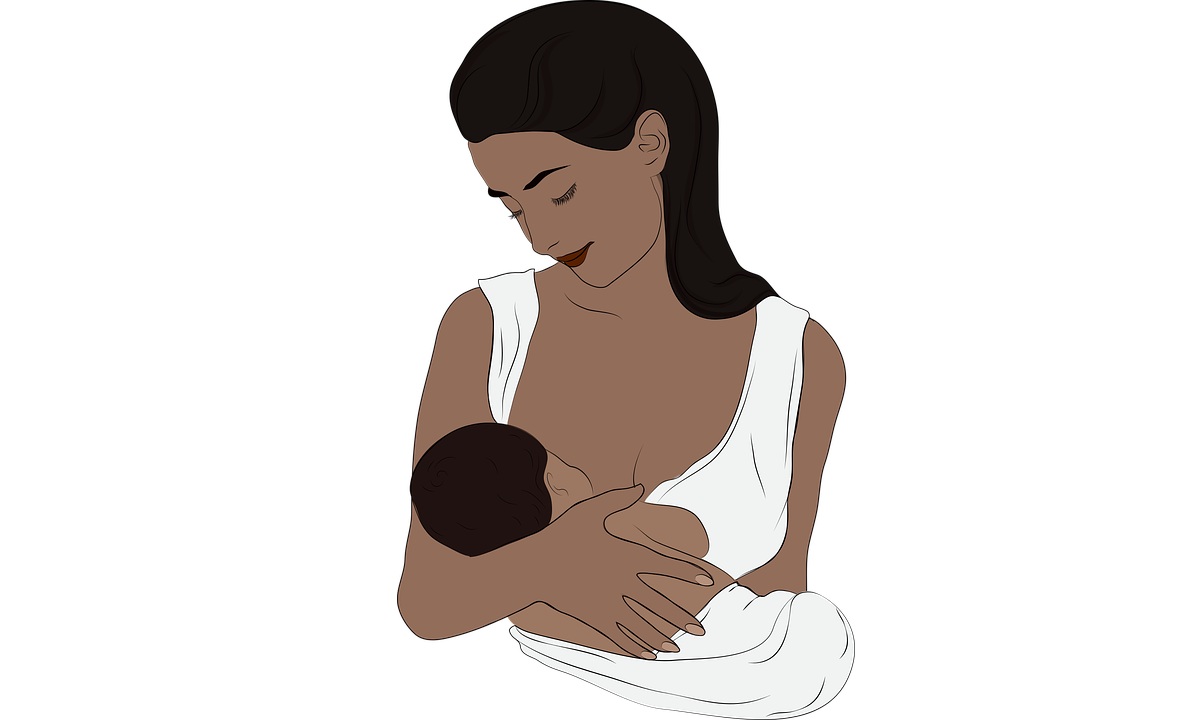You may have heard that putting a few drops of breast milk into an infant’s eye can help with eye discharge. This idea has been passed down through generations and remains a common practice in traditional, folk, and ethnomedicine. Some parents see it as a “natural” alternative to antibiotics. However, what does science say?
Can I put breast milk in my baby’s eye?
We at GHT first recommend consulting your pediatric provider before using breast milk for eye discharge to rule out conjunctivitis. Many newborns develop watery or sticky eyes, often due to an issue like a blocked tear duct. These cases usually resolve on their own without medical treatment, so antibiotics or breast milk are rarely necessary.
However, true eye infections, such as newborn pink eye (neonatal conjunctivitis), do require medical care. Left untreated, these infections can cause permanent eye damage (Miller & Cao, 2021).
We at GHT recommend consulting your pediatric provider before using breast milk for eye discharge to rule out conjunctivitis.
What Is Breast Milk Made Of?
Breast milk contains:
- Carbohydrates, proteins, and fats for growth
- Antibodies and other immune factors
- Beneficial bacteria and prebiotics
- Enzymes, hormones, and live immune cells
- Vitamins, minerals, and growth factors
These components help protect infants from infections and support healthy development (Witkowska-Zimny et al., 2019).
What Does Research Say About Putting Breast Milk in a Baby’s Eye?
A randomized controlled trial (Sugimura et al., 2021) found that breast milk eye drops were as effective as a common eye drop medication for improving eye discharge. However, the validity of this study has been questioned (Penco & Barbi, 2021), and more research is needed before breast milk can be recommended for this purpose.
Most claims about breast milk reducing eye discharge are anecdotal.
Other Studies About Breast Milk For Eye Infection
While laboratory studies confirm that breast milk has antibacterial properties, research also shows:
- It is not effective against all bacteria that cause eye infections (Baynham et al., 2013).
- Without proper treatment, infections can worsen and cause long-term problems (Miller & Cao, 2021).
Breast milk is incredible and often provides an excellent immune defense for infants. However, it will not eliminate infections. In areas where antibiotics are not readily available, breast milk may provide some protection compared to no treatment at all. However, in settings where safe medications are available, they remain the most reliable option.
Barriers to Providing Healthy Breast Milk
The American Academy of Pediatrics (AAP) recommends exclusive breastfeeding for the first 6 months of life (Meek et al., 2022). Still, we recognize that not all families can access healthy breast milk. For breastfeeding parents, lifestyle factors can influence their nutritional makeup (Favara et al., 2025), and environmental pollutants may sometimes be present (Martín-Carrasco et al., 2023; Meek et al., 2022). For families who do not breastfeed, safe and effective medications are available for eye concerns.
When to Contact Your Pediatric Provider
Eye infections in children can present with noticeable symptoms, including:
- Yellow or green eye discharge
- Trouble opening their eye
- Increasing redness
- Fever
- Lethargy
- Poor feeding
Breast milk is invaluable for infant health and nutrition, but it does not replace medical treatment for eye infections. If you are unsure whether your child’s eye symptoms are due to infection, consult your pediatric provider.
Get Trusted Guidance for Your Child’s Eye Health
At Growing Healthy Together, we respect cultural practices and strive to partner with families in making informed, safe decisions. We are here to support you in knowing when alternative approaches are reasonable and when medical treatment is essential to protect your child’s health. Ready for guidance you can trust? Schedule your child’s consultation today.
References
Baynham, J. T. L., Moorman, M. A., Donnellan, C., Cevallos, V., & Keenan, J. D. (2013). Antibacterial effect of human milk for common causes of paediatric conjunctivitis. British Journal of Ophthalmology, 97(3), 377–379. https://doi.org/10.1136/bjophthalmol-2012-302833
Favara, G., Maugeri, A., Barchitta, M., Lanza, E., Magnano San Lio, R., & Agodi, A. (2025). Maternal Lifestyle Factors Affecting Breast Milk Composition and Infant Health: A Systematic Review. Nutrients, 17(1), 62. https://doi.org/10.3390/nu17010062
Martín-Carrasco, I., Carbonero-Aguilar, P., Dahiri, B., Moreno, I. M., & Hinojosa, M. (2023). Comparison between pollutants found in breast milk and infant formula in the last decade: A review. Science of The Total Environment, 875, 162461. https://doi.org/10.1016/j.scitotenv.2023.162461
Meek, J. Y., Noble, L., & Section on Breastfeeding. (2022). Policy Statement: Breastfeeding and the Use of Human Milk. Pediatrics, 150(1), e2022057988. https://doi.org/10.1542/peds.2022-057988
Miller, C. G., & Cao, F. (2021). Ocular Infections. In R. Shinder (Ed.), Pediatric Ophthalmology in the Emergency Room: Evaluation and Treatment (pp. 147–161). Springer International Publishing. https://doi.org/10.1007/978-3-030-49950-1_11
Penco, A., & Barbi, E. (2021). We are not ready to use breast milk eye drops for infants with eye discharges. Acta Paediatrica (Oslo, Norway: 1992), 110(8), 2472. https://doi.org/10.1111/apa.15944
Pimple, S. N., Pedler, M. G., Shieh, B., Mandava, A., McCourt, E., & Petrash, J. M. (2024). Human Breast Milk Enhances Cellular Proliferation in Cornea Wound Healing. Current Eye Research, 49(11), 1138–1144. https://doi.org/10.1080/02713683.2024.2374836
Sugimura, T., Seo, T., Terasaki, N., Ozaki, Y., Rikitake, N., Okabe, R., & Matsushita, M. (2021). Efficacy and safety of breast milk eye drops in infants with eye discharge. Acta Paediatrica (Oslo, Norway: 1992), 110(4), 1322–1329. https://doi.org/10.1111/apa.15628
Witkowska-Zimny, M., Kamińska-El-Hassan, E., & Wróbel, E. (2019). Milk Therapy: Unexpected Uses for Human Breast Milk. Nutrients, 11(5), 944. https://doi.org/10.3390/nu11050944




